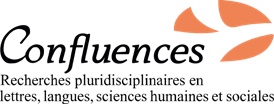Séminaire croisé ESTHUA – Axe 5 "The Double-Edged Effect: the Role of Goal Congruence in Emotional and Behavioral Reactions to Supervisor Bottom-Line Mentality"
-
Le 18 décembre 2023 de 14:00 à 15:20false false
-
ESTHUA - Faculté de Tourisme, Culture et Hospitalité | Université d'Angers
7, allée François Mitterrand | BP 40455 | 49004 ANGERS Cedex 01
> Si vous ne pouvez pas assister en présentiel, merci de compléter désormais ce formulaire de contact afin d’obtenir un lien de connexion Teams.
L’ESTHUA Faculté de Tourisme, Culture et Hospitalité propose, avec le soutien de l'axe 5 “Tourisme, territoire, solidarités” de la Structure Fédérative de Recherche (SFR) Confluences (Université d'Angers) et du GIS Études Touristiques, un cycle de séminaires de recherche en tourisme.
- La prochaine séance est intitulée :
The Double-Edged Effect: the Role of Goal Congruence in Emotional and Behavioral Reactions to Supervisor Bottom-Line Mentality

Avec Maxime WANG, Assistant Professor à Hong Kong Polytechnic University, School of Hotel & Tourism Management.
Synopsis
Although the triple bottom-line mentality has long been considered pertinent to serve as a sustainable business strategy, many supervisors are left with no option but to adopt bottom-line mentality for the sake of organizational survival in today’s market circumstance. Supervisor bottom-line mentality (BLM) refers to an employee’s perception that their supervisor emphasizes the business’s bottom line while overlooking other important outcomes (e.g., employee needs or well-being). Existing literature examining the outcomes of supervisor BLM tends to focus on employee cognitive processes and focal job behaviors, revealing both detrimental and salutary effects (Babalola et al., 2021). To explain the double-edged effects of supervisor BLM, this research investigates the relationship between supervisor BLM and employee discrete emotions (anger and passion) as well as subsequent discretionary job behaviors, with the purpose of understanding the complexity of supervisor BLM through the lens of emotion. Drawing on cognitive appraisal theory and the social-functional view of emotions, we examine whether followers display distinct emotional and behavioral reactions to supervisor BLM that are contingent upon the followers’ goal congruence. We hypothesize that when employee's personal goals are compatible with organizational goals, supervisor BLM is likely to produce passion and feedback-seeking behavior—a salutary outcome. However, when employees’ personal goals are incompatible with organizational goals, supervisor BLM tends to breed anger and feedback avoiding behavior—a detrimental outcome.
Adopting a full-cycle research approach across two studies, this research aims to test the proposed conceptual model using one multi-source, multi-wave field study (between-person) and one experience sampling field study (within-person). In doing so, this research captures the chronic as well as episodic effects of supervisor BLM. The proposed research contributes to the literature and practice in several ways. First, we capture how supervisor BLM contributes to employees’ discrete emotional experiences (and subsequent behaviors). In particular, we highlight the utility of emotional mechanisms in explaining followers’ behavioral responses to supervisor BLM. Second, we identify followers’ goal congruence as one contingency factor that alters the followers’ emotional reactions to supervisor BLM. In doing so, we refine the scholarly understanding of when supervisor BLM can induce distinct emotions among followers, thereby providing new insight into the double-edged effects of supervisor BLM through the lens of emotion. Third, we expand research on supervisor BLM beyond focal job behaviors to consider its impact on followers’ feedback-seeking and feedback-avoiding behaviors via the mediating role of anger and passion.






